Clinical Sites
UCLA neurosurgery residents obtain the majority of their core clinical training at UCLA Ronald Reagan Medical Center .This is supplemented by rotations at four other major metropolitan hospitals allowing for breadth and diversity of clinical experiences. Each hospital provides a unique, but complementary, training environment that allows trainees to the full gamut of neurosurgery practice. The residents are exposed to a diverse patient population spanning the entire socioeconomic and cultural spectrum. The experience received at each of these hospitals is additive and complementary: providing our residents an important and unique exposure to a wide variety of neurosurgical practices and disorders. Together, these hospitals perform over 5000 neurosurgical operations annually.
Ronald Reagan UCLA Medical Center
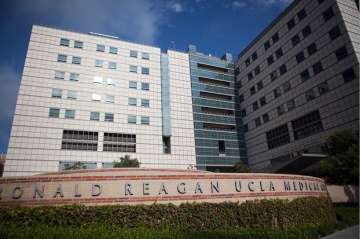
The Ronald Reagan UCLA Medical Center is the primary teaching hospital, located on the UCLA campus in Westwood, CA. This new 540-bed state-of-the-art hospital opened its doors in 2008. The UCLA Medical Center has been ranked 'Best in the West' by U.S. News & Report for over 20 years, and most recently #3 in the U.S. The neurosurgical experience is primarily centered on cranial neurosurgery, but the full gamut of routine and complex intracranial, pediatric, spine, functional, epilepsy, and peripheral nerve operations are performed at “Reagan.” It is a Level 1 Trauma Center, a Comprehensive Stroke Center and a major tertiary hospital, accepting patients from throughout Southern California and surrounding states.
With regard to core clinical training, residents rotate at “Reagan” several times: 5 months as an intern, a year as the Junior 2nd year resident; 4 months in PGY3 and PGY5, and 8 months as Chief resident as a 6th year resident. Over 1200 inpatient and 300 outpatient cranial neurosurgical operations are performed annually at this hospital.
Harbor-UCLA Medical Center
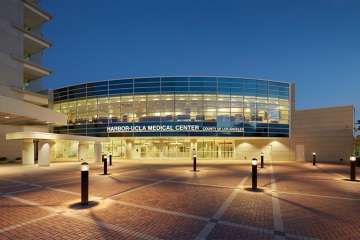
Located 25 miles south of UCLA, the Harbor-UCLA Medical Center is a 570 bed hospital in Torrance, CA. It is the second largest Los Angeles County hospital and a Level 1 Trauma Center. Residents enjoy a high level of responsibility and training-appropriate autonomy in an environment of close, supportive supervision. The operative experience includes a wide spectrum of cranial tumor, vascular, trauma, and spinal neurosurgical procedures. Residents rotate at “Harbor” twice, 4 months as a Senior resident during the 3rd year and again 4 months as a Chief resident during the 6th year of training. Over 400 inpatient neurosurgical operations are performed annually.
West Los Angeles VA Medical Center
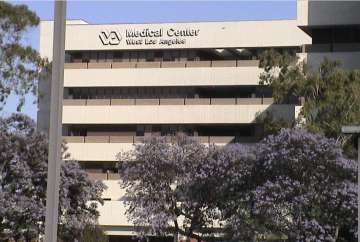
The West Los Angeles VA Medical Center is located just one mile west of UCLA, serving as the major neurosurgery referral hospital for VA patients in Southern California, Nevada, and Arizona. The residents receive an excellent experience in the surgical management of adult neurosurgical conditions, particularly spinal neurosurgery. The residents rotate at the “VA” for 1 month as an intern and then for 4 months as a Senior resident during the 5th year of training. Over 250 inpatient neurosurgical operations are performed annually at this 500-bed hospital.
UCLA Santa Monica Medical Center
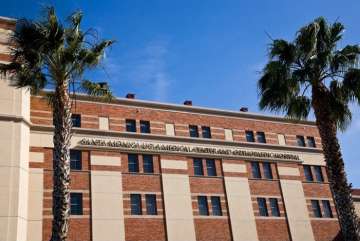
UCLA Santa Monica Medical Center is a 266-bed hospital located five miles west of UCLA. “Santa Monica” is the site of the UCLA Comprehensive Neurosurgery-Orthopedic Spine Center. Residents receive a focused experience in both inpatient and outpatient spinal surgery over a 4 month rotation during PGY5. Over 350 inpatient and 150 outpatient neurosurgical operations are performed annually.
Kaiser Permanente West LA Medical Center
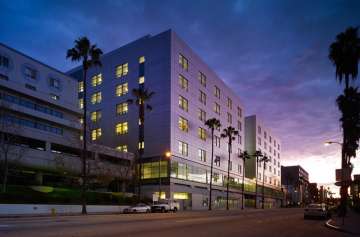
The Kaiser Los Angeles Medical Center is located 14 miles east of UCLA in the city of Hollywood. “Kaiser” is 464-bed hospital that serves as the neurosurgery referral hospital for the southern California Kaiser Permanente health system. There are 14 full time neurosurgeons on staff. During the 3rd year, residents receive a focused experience in spinal neurosurgery. Over 2500 inpatient neurosurgical operations are performed annually.